The Hype Around Elite Petroleum Engineering Schools
Underrated petroleum engineering programs Everyone talks about the “top” petroleum engineering schools—Stanford, Texas A&M, University of Texas at Austin. They dominate rankings, attract big-name recruiters, and seem like the golden ticket to a high-paying career. But is that really the full story? Are these elite schools truly worth the hype, or are we just conditioned to believe that prestige equals success?
What Defines a Great Petroleum Engineering School?
Before jumping to conclusions, let’s break it down. What actually makes a petroleum engineering program “great”? High job placement rates? Cutting-edge research? Strong industry connections? Sure, elite schools have these. But here’s the twist: many lesser-known schools offer the same—or even better—opportunities without the brand-name price tag.

Hidden Gems: Underrated Petroleum Engineering Programs
You might be surprised to learn that some lesser-known universities provide excellent petroleum engineering education. Schools like Louisiana Tech University, University of Tulsa, and Montana Tech offer rigorous programs, hands-on training, and direct industry connections. They just don’t get the same media buzz as the “big names.”
Why Consider an Underrated Program?
- Lower tuition, higher ROI: Many elite schools charge sky-high tuition fees. Meanwhile, underrated programs offer quality education at a fraction of the cost, leaving graduates with less debt.
- Smaller Class Sizes: You’re not just another face in the crowd. Smaller programs mean more one-on-one time with professors and personalized career guidance.
- Industry Partnerships: Some underrated schools have deep ties with regional petroleum companies, offering students valuable internships and job placements.
- Less Competition: Getting into elite programs is tough. But what if you could access the same opportunities with less stress at an underrated school?
Real Success Stories from Lesser-Known Schools
Let’s talk about Mike. He got accepted into a top-tier petroleum engineering school but couldn’t afford the tuition. Instead, he chose a smaller, lesser-known university. Today, he works at a leading oil company—without drowning in student loan debt. His secret? Leveraging internships, networking, and focusing on skills rather than a school’s reputation.
Sarah, another petroleum engineering graduate, attended a lesser-known state university. She took advantage of an industry partnership program, landed an internship at an oil and gas firm, and secured a full-time job before graduation. Her degree cost her half of what she would have paid at an elite school, yet she landed the same level of opportunity.
Does prestige really matter in petroleum engineering?
Here’s the truth: employers care more about what you can do than where you studied. Recruiters look at your experience, skills, and ability to solve real-world problems. Graduates from underrated programs armed with practical experience often perform just as well—if not better—than their Ivy League counterparts.
Some companies even prefer hiring graduates from smaller schools because they tend to have more hands-on training. A recruiter from a major oil firm once stated that many elite school graduates struggle with real-world problem-solving because they focus too much on theoretical concepts rather than field applications. Employers value practical skills over a school’s prestige.
The True Cost of an Elite Petroleum Engineering Degree
Let’s talk money. The cost of attending a top petroleum engineering school can be staggering. Tuition at elite institutions can exceed $50,000 per year, not including housing, books, and other expenses. Now, compare that to underrated programs where tuition may range from $10,000 to $20,000 annually. That’s a massive difference in student loan debt!
More importantly, your starting salary in petroleum engineering will be almost the same whether you graduate from a big-name school or a lesser-known program. Petroleum engineers typically earn between $90,000 and $120,000 in their first few years, regardless of their alma mater. So, does it really make sense to take on huge debt for a prestigious name?
The Power of Networking and Internships
One of the biggest advantages elite schools have is their alumni network. But here’s something many students overlook: networking isn’t limited to prestigious universities.
Attending an underrated petroleum engineering school doesn’t mean you won’t have great connections. In fact, many industry professionals actively mentor students at smaller institutions. Building strong relationships with professors, attending industry conferences, and leveraging internship programs can give you the same networking advantages as an Ivy League student.
Some of the most successful petroleum engineers didn’t attend big-name schools. They made their way up by making strategic connections, gaining hands-on experience, and continuously learning. Also Read.>>
Choosing the Right School for You
So, how do you decide if an elite petroleum engineering school or an underrated program is right for you? Ask yourself:
- Can I afford the tuition without significant debt?
- Does the school offer strong industry partnerships and internship programs?
- Will I get hands-on experience and real-world problem-solving skills?
- Is the alumni network active in the petroleum engineering field?
The answers to these questions matter more than rankings. A lesser-known school with excellent industry connections and practical training might be a smarter choice than an expensive elite institution.
Final Thoughts: Choose Wisely, Not Blindly
So, are elite petroleum engineering schools overrated? Maybe. The key is to choose a school that fits your goals, budget, and learning style—not just one with a fancy name. Success in petroleum engineering isn’t about where you study; it’s about how well you prepare yourself for the industry.
Ready to Make the Right Choice?
Explore underrated petroleum engineering programs, visit their campuses, and talk to current students. Sometimes, the best opportunities are where you least expect them.



